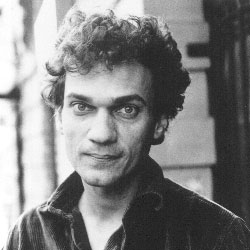1
Being a dog is an empty car park at noon.
“Nothing but trouble …” and seasickness on land.
Being a dog is that and that, taking instruction from garbage heaps,
A knuckle sandwich for dinner, mud orgasms.
Being a dog is whatever happens next, randomness
The mother of boredom and incomprehension.
Being a dog is being up against a bigger opponent
Time, which does you in with endless chain-links.
So much of too-much in a tiny space …
Being a dog is a ride on the ghost train of language,
Which keeps throwing clever obstructions your way.
Being a dog is having to when you don’t want to, wanting to
When you can’t, and always somebody watching.
Being a dog?
It’s the bad smell attaching to your words.
Notes on the Poem
Michael Hofmann translates and brings alive anew many vivid phrases, images and sensations in this excerpt from German poet Durs Grunbein's poem "Portrait of the Artist as a Young Border Dog (Not Collie)". Would it be fair to assume that the intense cumulative effect of this poem accurately reflects the sentiments Grunbein strove to convey in the original, which is possibly inspired by his early upbringing in East Germany before the fall of the Berlin Wall? Let's revisit this poem and consider this question again. Grunbein, with Hofmann translating, uses a confined and probably abused dog as a central metaphor for the narrator's feelings of frustration and powerlessness at being severely constrained. "[A]n empty car park at noon" is a lonely, barren, lifeless place. "[S]easickness on land" suggests disorientation, queasiness and even a sense of betrayal, not feeling stable or secure when you believe you should be able to trust your surroundings. "A knuckle sandwich for dinner" captures both violence and deprivation ... and it gets more bewildering and oppressive with each successive line. The phrase "endless chain-links" is likely both metaphorical and literal, in the world in which Grunbein lived until Germany was reunified when he was 27. Interestingly, one analogy is leavened with a trace of ambiguity that actually makes it almost hopeful compared to all the others: "Being a dog is whatever happens next" Never knowing what happens next, subject to fate's vagaries and the cruelties of an unrelenting oppressor ... yes, but could this also suggest that the dog and/or Grunbein was living in and for the moment? Does this perhaps give a clue to how Grunbein personally survived the tyranny that informed his early upbringing? Enjoy this collection of pieces about Durs Grunbein and his poetry collection Ashes for Breakfast (from which this poem excerpt is taken). You'll find here some interesting insights into the poet and his translator, whose potent collaboration has made a work powerful in not one, but two languages.
